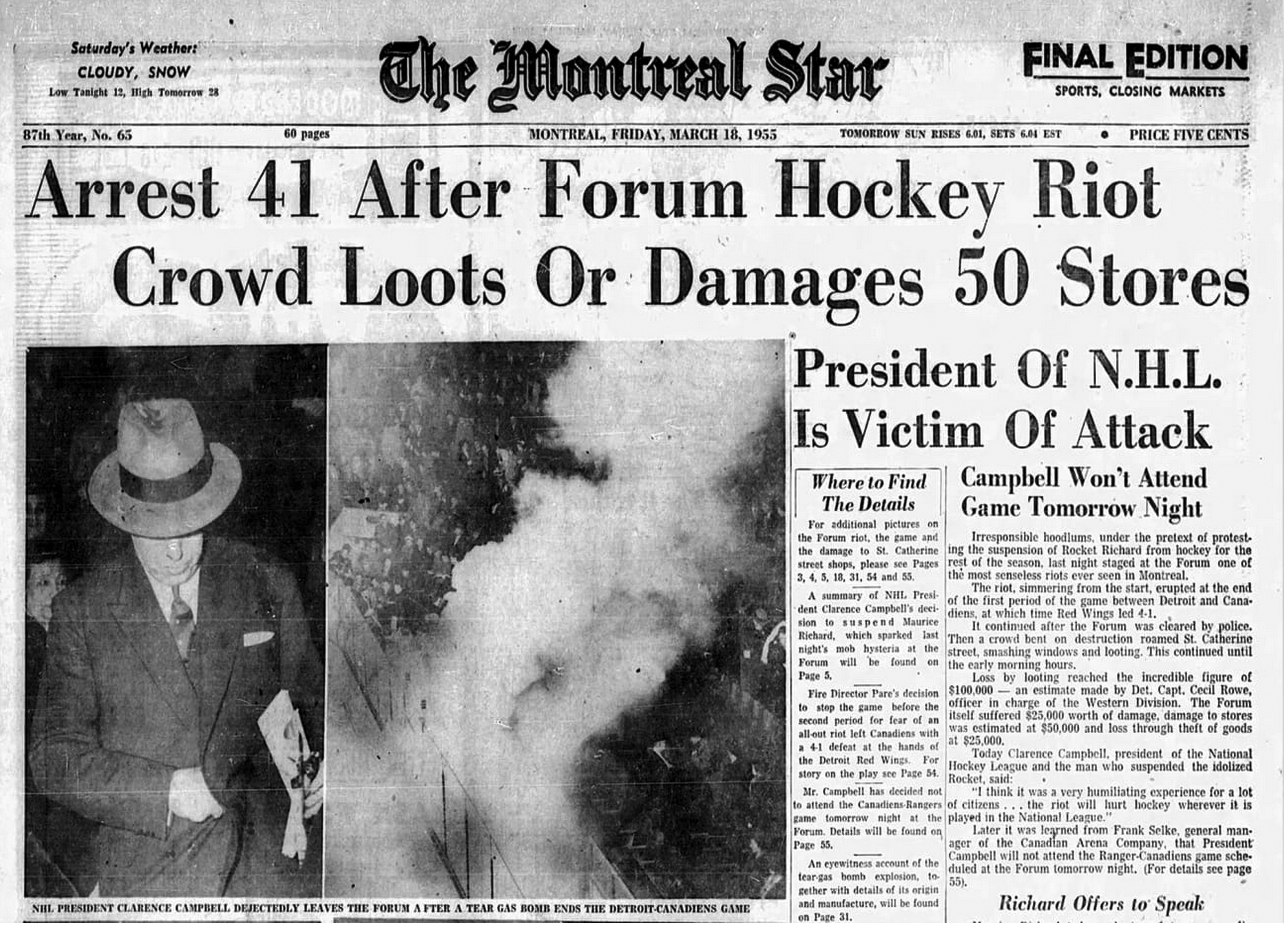
Updated: date
Published: OCTOBER 2025
A beloved Quebecois cultural institution
The Montreal Canadiens: more than a hockey team
By JEREMY KUZMAROV
Writing from Tulsa, Oklahoma
Trivia quiz: where and when was the biggest hockey riot in history? The answer: an angry horde of fans rioted in the Forum and then rampaged through downtown Montreal streets on March 17, 1955, incensed by the suspension of their hero, Montreal Canadiens high-scoring right winger Maurice ‘Rocket’ Richard.
In his extensively researched new book, Habs Nation: A People’s History of the Montreal Canadiens, Montreal Gazette columnist Brendan Kelly traces the intersection of Quebecois culture and sports as personified in the history of the Montreal Canadiens of the National Hockey League (NHL). No incident illustrates Kelly’s point better than the ‘Richard Riot’ which is considered a major historical milestone, highlighting the growing calls for greater autonomy by French-Canadians and a precursor to the Quebec independence movement.
As a Gazette columnist since July 1996, Kelly writes about arts and entertainment with a focus on Quebecois culture, as well as a hockey column titled ‘What the Puck’ chronicling the Canadiens hockey club from the perspective of fans. So it was only natural that Kelly would transform his years-long research as a Gazette journalist into a book about the cultural and historical significance of the Montreal Canadiens within Quebec society. He interviewed numerous former Canadiens stars for his book, including Denis Savard and Bob Gainey, who served as team captain during his playing days and as general manager after he retired as a player in 1989.
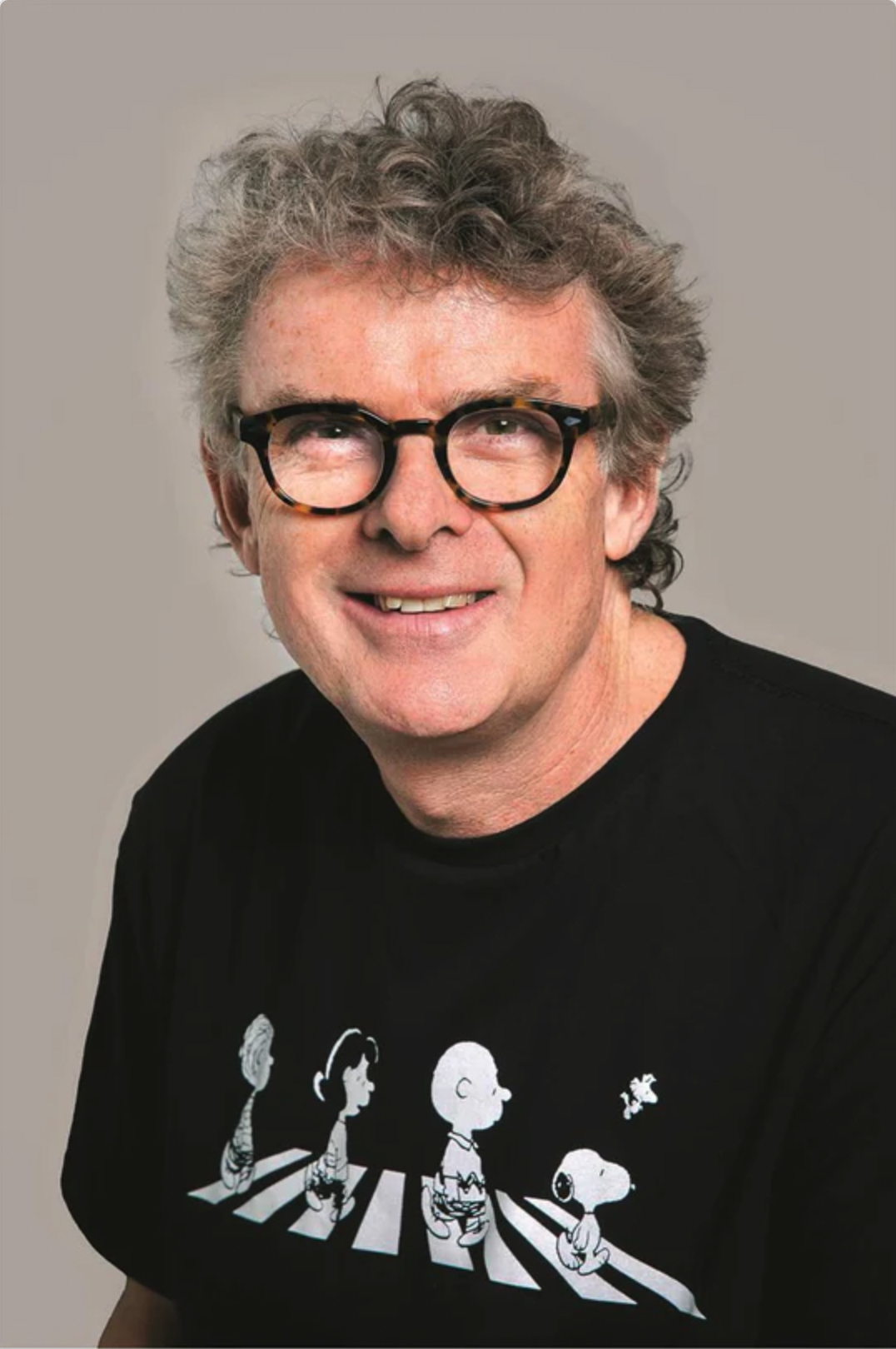
The bilingual Kelly originally wrote a French-language version of his tome called ‘Le CH et son Peuple’ published in 2024 by Les Éditions de l'Homme. After the French-language book came out, Baraka Books publisher Robin Philpot acquired the rights and asked Kelly to adapt it for the English version with the help of translator Peter McCambridge. It was released on October 1, 2025.
In a September 26, 2025 telephone interview with me, Kelly compared the Canadiens image and influence in Quebec society with the status of the FC Barcelona soccer team in Spanish society, where it inspires pride in Catalonian culture and embodies Catalonian nationalism and independence aspirations vis-à-vis Spain.
Rocket Richard, in particular, was “the emblem of a whole people” during his heyday, according to Kelly. Quebec hip hop artist Sebastien ‘Biz’ Frechette is quoted in Habs Nation saying that “when Richard scored a goal,” Quebecers felt they had “scored a goal too.”
Sports reporter Karine Haines wrote in The Hockey News that “for those who believe that sports and politics are two separate matters, this book may change your mind. If you’re only going to read one hockey book this year, this should be the one.
“Kelly’s opus stands out because it’s more than a book about hockey,” added Haines. “It’s about a religion for Quebecers and how they came to be throughout the years.”
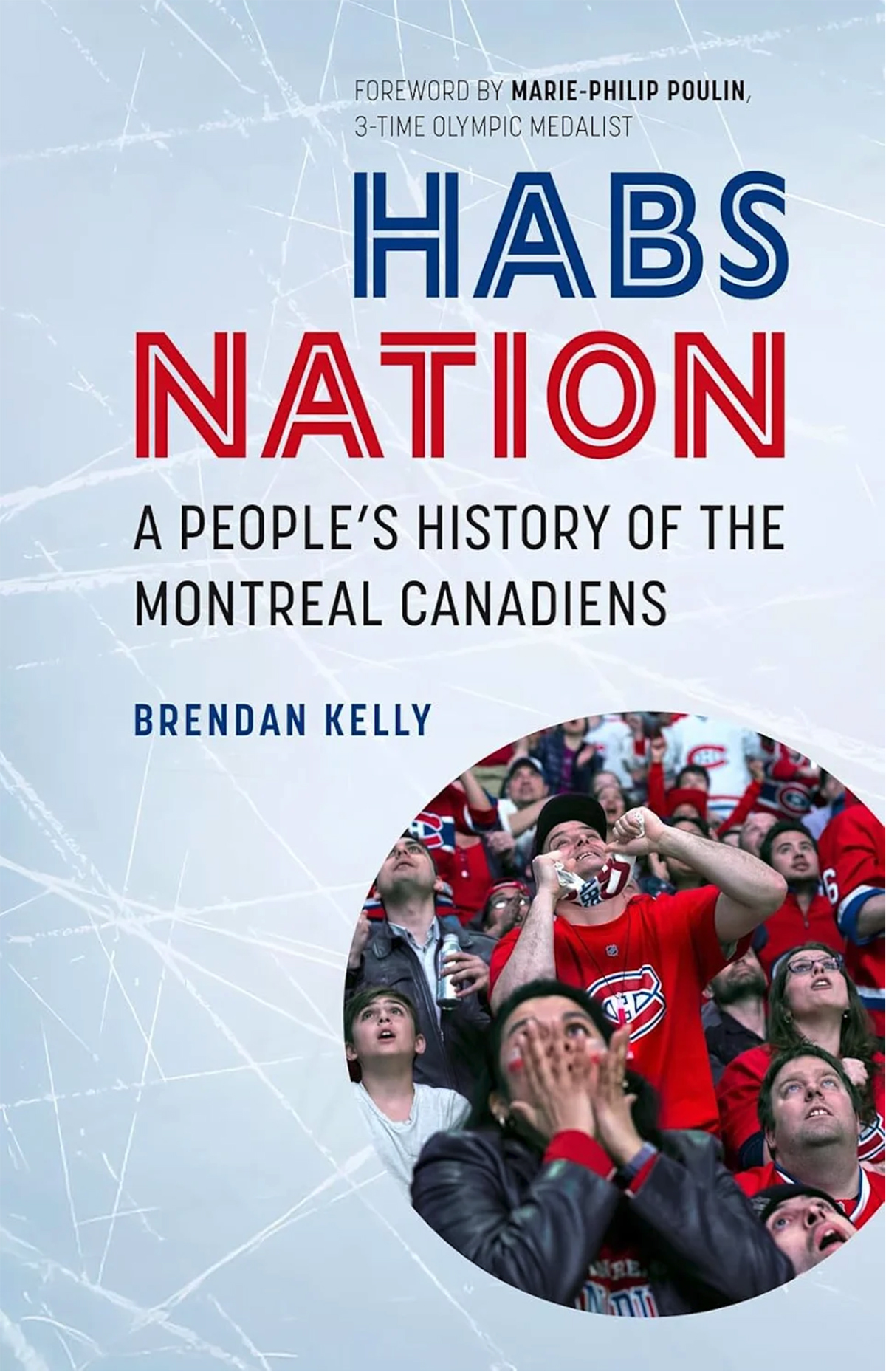
Kelly does not consider it to be coincidental that the golden age of the Quebec nationalist movement in the 1960s and 1970s coincided with a period of great Canadiens success on the ice. Between 1955 and 1980, the Canadiens won an astounding 15 Stanley Cups, marking them as among the greatest sports dynasties of all time.
It is notable that many of the best players on the team during that era of nationalist fervor were francophones, resulting in the Canadiens being dubbed ‘The Flying Frenchmen’. During the 1950s and 1960s, Richard starred alongside his brother, Henri ‘Pocket Rocket’ Richard, Jean Béliveau, Bernie ‘Boom Boom’ Geoffrion, and goalie Jacques Plante. In the 1970s, ‘The Flying Frenchmen’ were led by Guy Lafleur, Yvan Cournoyer, Jacques Lemaire, and Serge Savard.
The first 10 years of this nationalist period was between 1960 and 1970, an era known as ‘The Quiet Revolution’ which began after the Quebec general election of 1960. By contrast, in decades prior to the 1950s, most Canadiens stars were anglophones such as Howie Morenz, Hector ‘Toe’ Blake, and Elmer Lach.
In our September 26, 2025 interview, Kelly emphasized the “important interplay between the Montreal Canadiens team and society, especially in the 1960s and 1970s when the team’s success coincided with a great period for Quebec. This was a period when there was an explosion of books, plays, and films celebrating French-Canadian culture, as well as the rise of the Parti Québécois (PQ) which came to power fighting for Quebec.”
Kelly considers it to be politically significant that on the night of November 15, 1976 when the left-leaning, sovereigntist Parti Québecois led by René Lévesque won a Quebec election for the first time, thousands stood up and cheered at a Habs game as the centre ice screen at the Forum flashed a message in the third period: ‘Un Nouveau Gouvernment’ [A New Government].
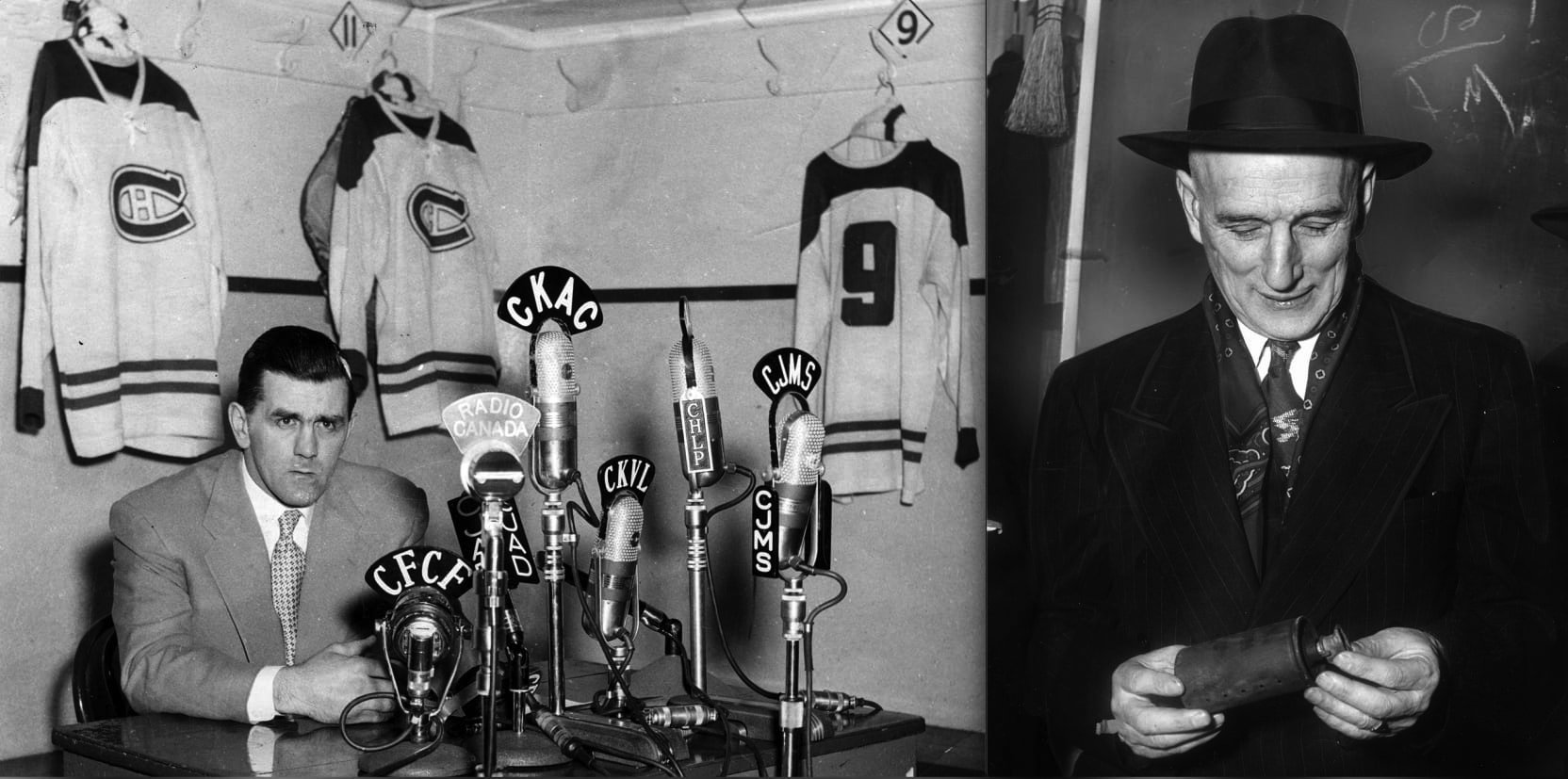
And the fuse that is credited with lighting the nationalist fervour that led to the PQ election in 1976 was the Richard Riot of March 17, 1955. The backstory to the Richard Riot was that NHL president Clarence Campbell – a unilingual anglophone – had suspended Richard on March 16, 1955 for the balance of the season and for the playoffs after Richard punched a linesman leaving him unconscious during a March 13 fight between Richard and Boston Bruins defenceman Hal Laycoe who had previously high-sticked Richard to the head. Richard said he punched the linesman because he was holding him down, allowing Laycoe to pummel him.
On March 17 – the day after Richard’s suspension was announced – the crowd went berserk when Campbell, despite receiving death threats, showed up at the Forum for a match against the Detroit Red Wings. Campbell was pelted with food, slapped in the face, and had a tomato smeared in his face. When a tear gas cannister was detonated, Campbell had seen enough: he declared the game forfeited to the Red Wings who were winning 4-1 at that time.
The frenzied crowd of Canadiens supporters spilled out of the Forum and rampaged for approximately five hours along a 15-block area, smashing windows and doors at the Forum and at nearby businesses, over 50 of which were looted.
The riot foreshadowed the 1963 founding of the militant Front de libération du Québec (FLQ) which fought to break English-Canadian domination by establishing Quebec as an independent, socialist country. The period between 1963 and 1970 was marked by several bomb explosions, culminating in the October Crisis of 1970 when Prime Minister Pierre Elliot Trudeau invoked the War Measures Act to deploy the Armed Forces after the FLQ kidnapped British Trade Commissioner James Cross and Quebec Labour Minister Pierre Laporte, demanding the release of 23 imprisoned FLQ members.
Cross was eventually released, but Laporte was murdered by his FLQ captors. During the period from 1963 to 1970, The Canadian Encyclopedia cites “more than 200 bombings and dozens of robberies that left six people dead” in Quebec province.
Although French and English Montrealers are often bitterly divided over politics involving language and lingering separatist aspirations, Kelly suggests that they come together in support of the Canadiens. For example, a story read by almost all Quebec students – French and English – is Roch Carrier’s The Hockey Sweater, an autobiographical account of how as a young boy he was shunned by peers when he was gifted a Toronto Maple Leafs sweater instead of a Canadiens sweater bearing Rocket Richard’s iconic No. 9.
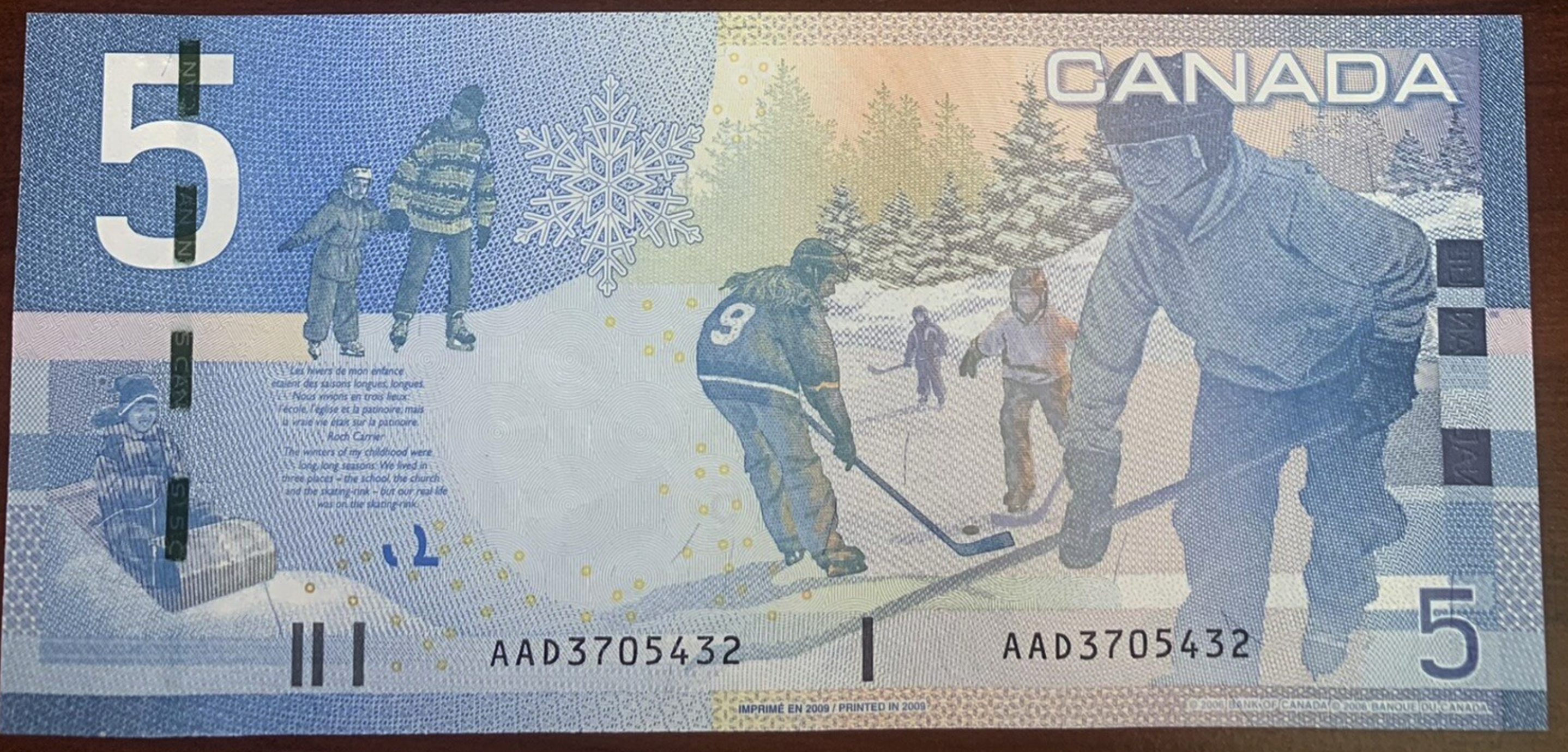
Kelly notes that French Quebecers today face an identity crisis with the growing diversification of Quebec society. Many question the extent to which French-Canadian culture and nationalist aspirations can ever be embraced by immigrant groups who may not fully appreciate Quebec’s unique history.
According to Kelly, the Canadiens franchise faces a similar identity crisis as the French-Canadian nationalist movement writ large. A key reason for this is that the team is expected to win and can no longer prioritize the drafting of French-Canadians in a league with elite players available from all around the world.
Although times have changed and the era of The Flying Frenchman can never be replicated, there is renewed excitement around a nucleus of talented young players managed by Canadiens coach Martin St. Louis as the team entered the 2025-26 season. And for those fans who might appreciate learning about the cultural history and relevance of ‘Les Glorieux’, Brendan Kelly has written just the book for you!